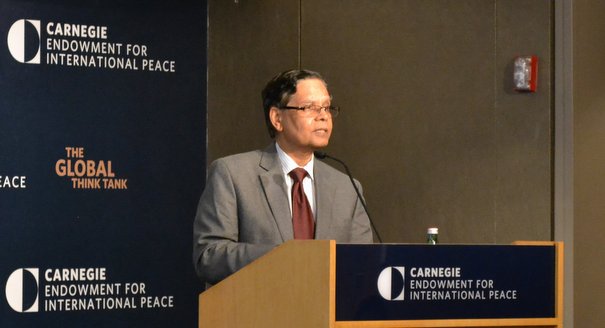Registration
You will receive an email confirming your registration.
The liberalizing Indian economic reforms of the 1990s and early 2000s led to a significant shift in the growth rate and poverty reduction in India. Arvind Panagariya argued that the country has paid a heavy price for abandoning that path in 2004, and especially from 2009 to 2014. He detailed the return to the reforms under the present government and the impact that this return is likely to make on India’s future economic trajectory. Carnegie’s Milan Vaishnav moderated.
The Carnegie Endowment for International Peace is grateful for the support of the Indian Council for Cultural Relations in making this event possible.
Arvind Panagariya
Arvind Panagariya is vice chair of Niti Aayog. He has served as a professor of economics at Columbia University and is a past chief economist of the Asian Development Bank.
Milan Vaishnav
Milan Vaishnav is an associate in Carnegie’s South Asia Program. His primary research focus is the political economy of India.
